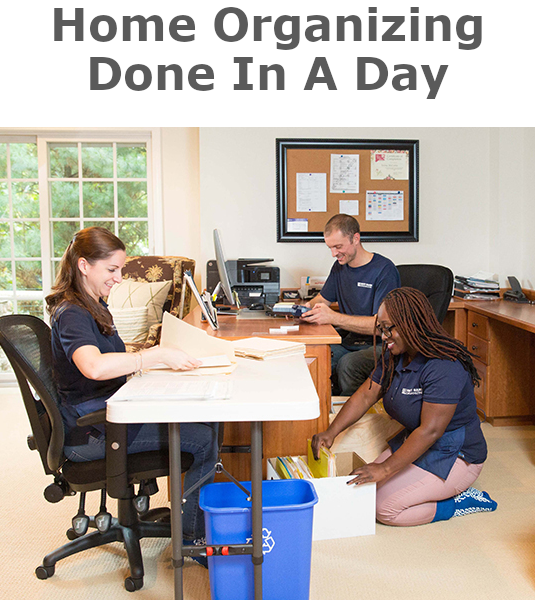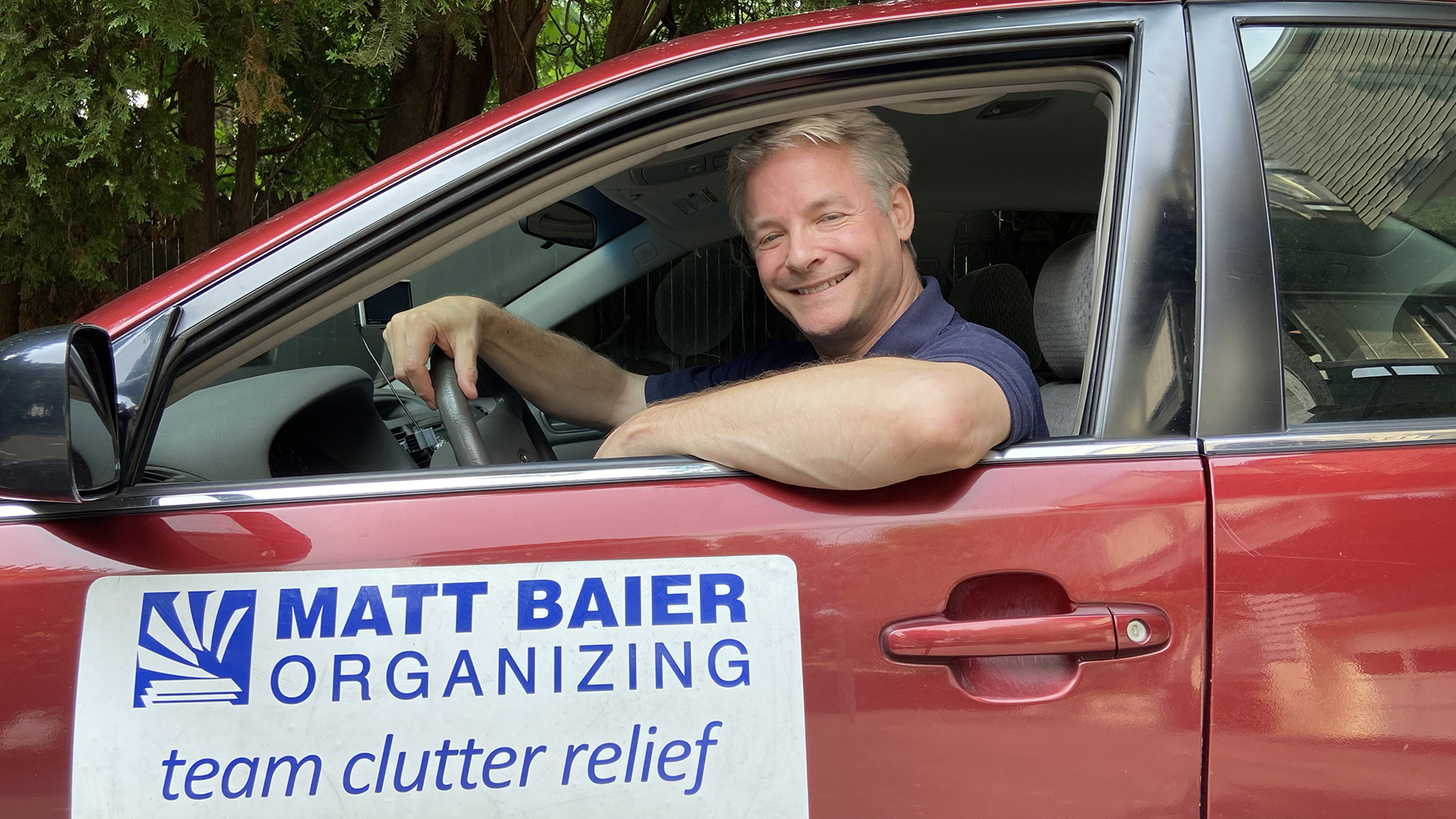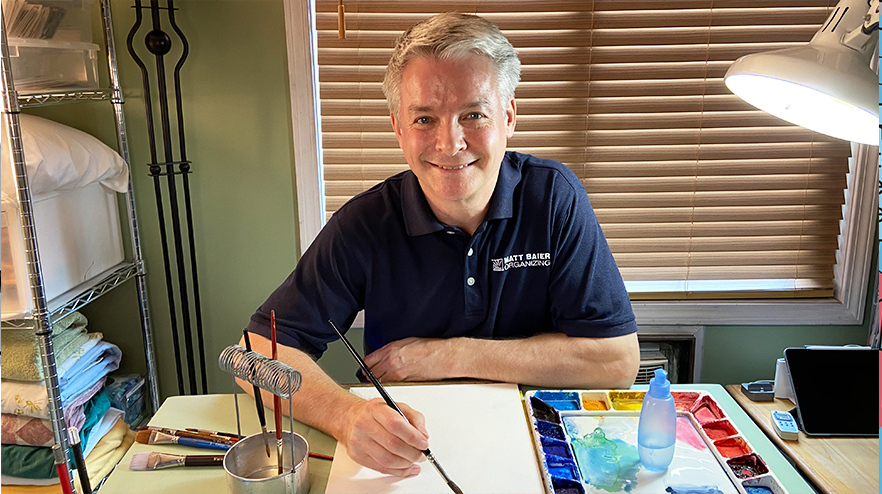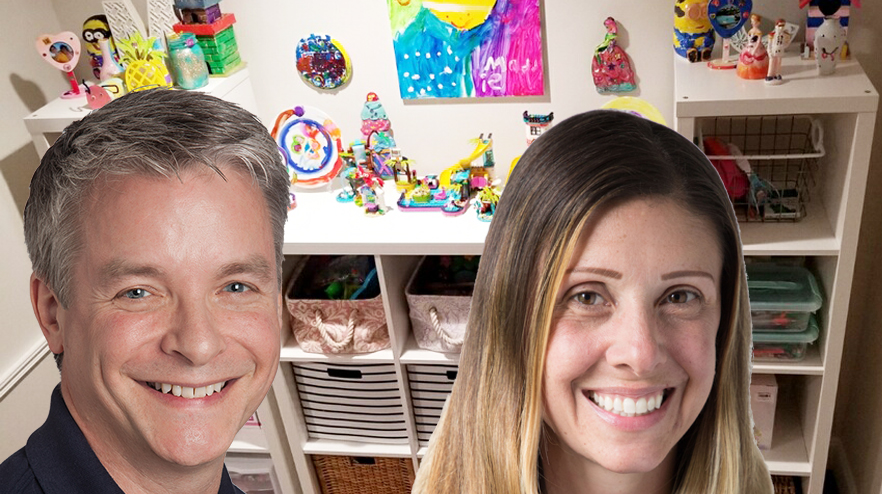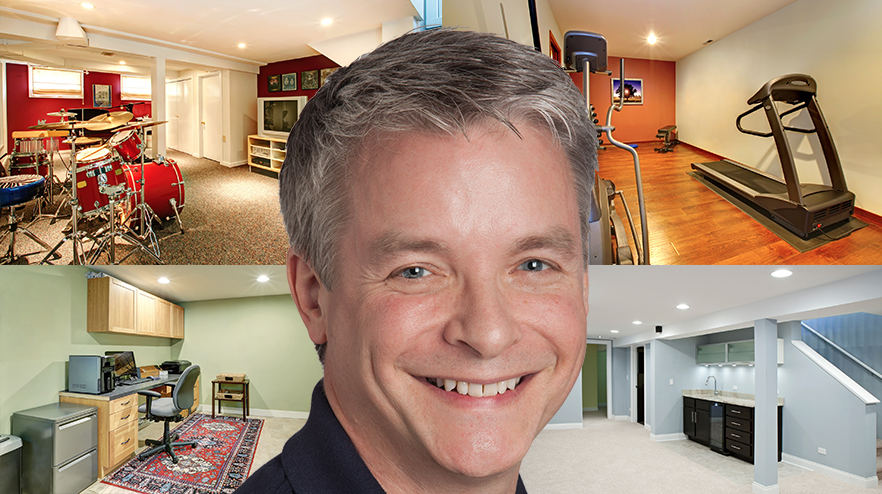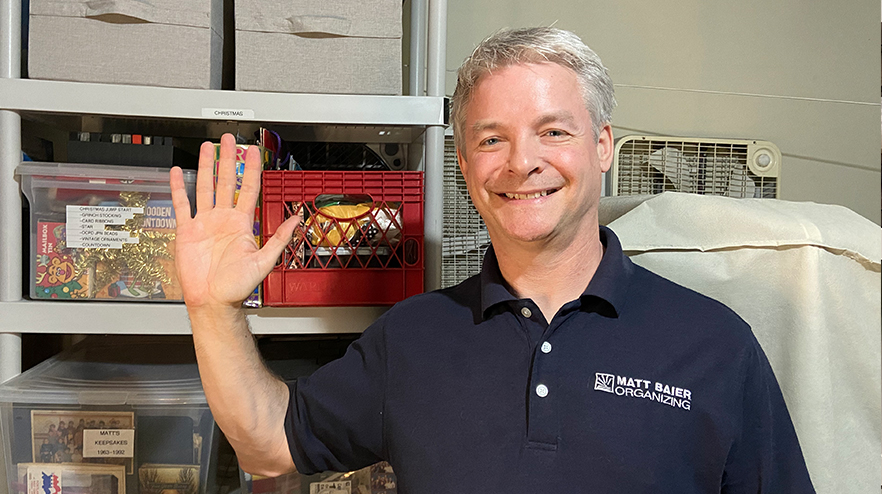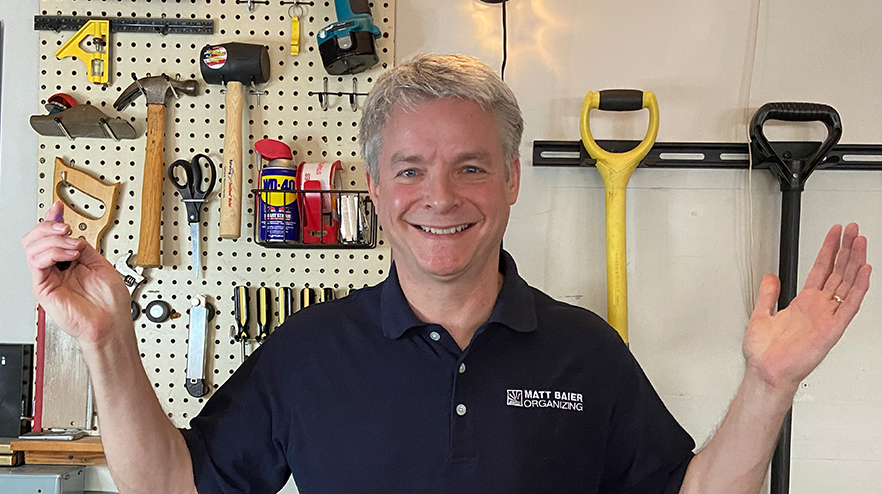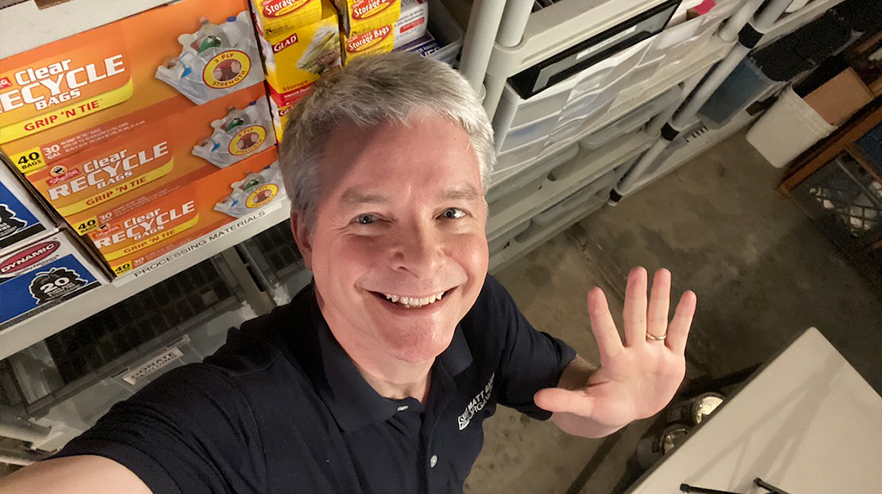Originally from Matt Baier’s Organizing Works Newsletter, June 2008
SAFE HARBORS
One of the most familiar complaints I hear from my clients is that they waste countless hours looking for important things they need all the time. Some of the usual suspects are glasses, cell phones, wallets, date books, and keys. I certainly can’t guarantee that you will never lose these items again, but you can increase your odds significantly by creating and using what I call SAFE HARBORS. What follows are seven useful tips to create those safe harbors. These apply to all of the above examples, but I am going to focus on the first item on the list: glasses.
1. Choose Wisely. A safe harbor should be convenient. Don’t just choose a spot because it is empty. If you do find an empty spot, it is probably empty because it is inaccessible. Consider, for example, freeing up space on the convenient table near the door by moving the framed photos to the inaccessible empty shelf. Also, avoid a solution that requires you to put your glasses in a case, in a box, and in a drawer in a remote room. You’ll never use that system. A safe harbor must be easy to use. Finally, make a habit of keeping your glasses or date book in just one or two places. If they have NO place then they can end up ANY place.
2. Prioritize. If you depend on your glasses to see, how important are they to you on a scale of 1 to10? Since it becomes difficult to DO anything unless you can SEE everything, I think your glasses would probably rate a ten. A good safe harbor for your glasses is your nightstand, since it is closest to where you rest your head at night. Given that the surface of a nightstand is so small and it’s location is so key, this constitutes prime real estate. Use it wisely. Don’t, for example, let your glasses get crowded out by books, magazines, and little boxes of junk. You might even want to allot a dedicated space for your glasses with a little tray or glasses case. It may be obvious to give important things like glasses top priority, but it is equally important to give less important (and large) things, like books, LESS priority.
3. Hands Free. Avoid using your hands as transportation, let alone as storage. Your hands are valuable tools and should be reserved as such. Furthermore, far more activities require the use of BOTH hands than we care to admit. So if you depend on your hands to store your glasses or cell phone, it is only a matter of time before you lose these important items. If your glasses are for reading then you probably can’t leave them in a stationary harbor. In that case, consider a cord around your neck or a pocket case with a clip so your hands are free and your glasses are safe.
4. By the door. While the nightstand is prime real estate, a small surface by the front door (table, shelf, platform) may well be the MOST valuable tract of land in your home. Again, use it wisely. If you are in the habit of losing important items, do yourself a favor and reserve this small surface by the door for items that circulate in and out of your house ONLY. Some good candidates are cell phones and cell phone chargers, sunglasses, keys, and returnables. Returnables would include everything from casserole dishes borrowed from friends to books from the library. Don’t waste this valuable space on flowers, framed photos and other display items. Strictly dedicate this space as a safe harbor for items that circulate. This less-is-more approach will keep you organized.
5. Not the desk. “Not the desk? But that’s where all the IMPORTANT stuff happens.” In that last sentence take the emphasis off “important” and place it on “happens.” A clear desk (or any work surface) is your most valuable organizing tool IF you reserve it for processing work. All it takes is a piece of paper to hide your glasses or cell phone and a moment’s inattention to sweep them on to the floor. Instead, choose a drawer, small tray, or shelf near your desk as a safe harbor.
6. Only takes a second. Of course a moment’s inattention can happen anywhere in the home or office and it only takes a second to lose something for hours. It takes just another 5 seconds to grant your glasses or cell phone the importance they deserve. Take just five seconds to put your glasses in your pocket case or clip your cell phone to your belt when you are pulling laundry from the dryer. We tend to leave our important items in odd places because in the moment it doesn’t occur to us that we could forget that our glasses are resting on the shelf over the dryer. But maybe the phone rings or the clothes fall on the floor and suddenly the location of your glasses has been displaced from your brain, while you head upstairs and launch into a series of other activities and thoughts.
7. Reveal don’t conceal. Perhaps it seems safer to keep important things in a box with a lid. If your priority is on protecting things then yes, lids are great, but if your priority is on finding things then REVEAL them. Most of the common items that get lost are not likely to collect dust because they get used so often. Also, these are items that always need to rise to the top. In other words, you wouldn’t want to bury your glasses, even if you could. Finally, lids become barriers. We are less inclined to put things away in items with lids than we are to set items down on open safe harbors.
Harbors are generally deep-water inlets reserved for protecting boats from rough waters. In your home reserve important spots like your nightstand and the surface near your front door for the important items you tend to lose the most. Not all items are created equal. The most important items deserve the most important locations
Please Share With Your Community






